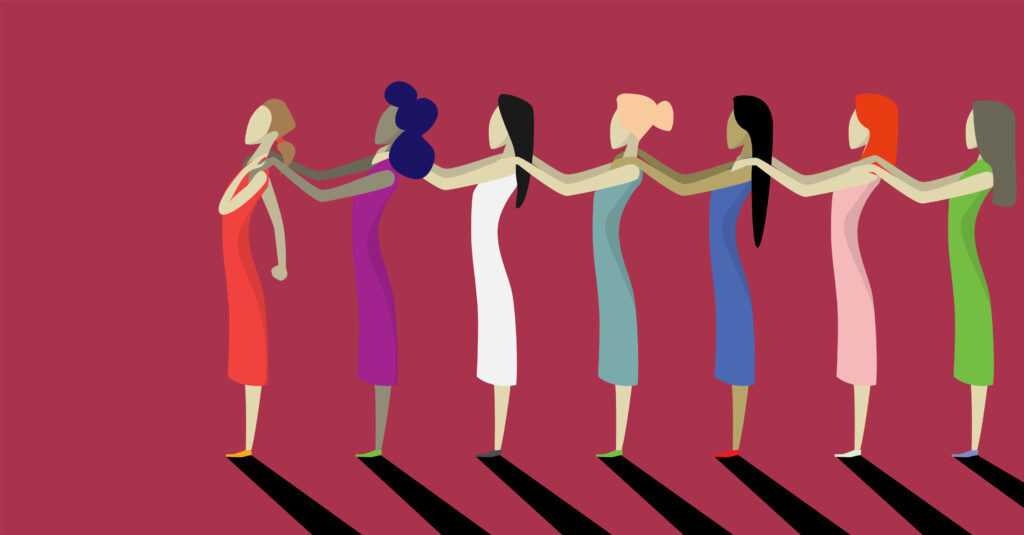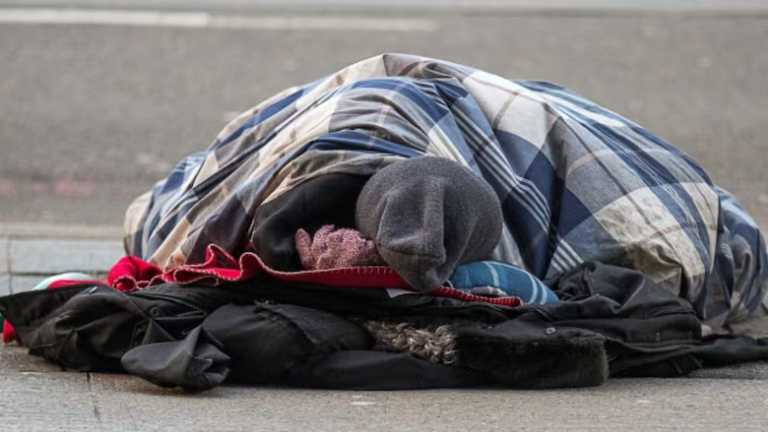Joel Rumson
The University of New Brunswick (UNB) acknowledged the 16 Days of Activism Against Gender-Based Violence, a global campaign that ran from Nov. 25 to Dec. 10.
Beginning on the International Day for the Elimination of Violence Against Women, the 16 days serve to prompt individuals and communities in Fredericton to raise awareness, learn about vital support resources and take tangible steps to end gender-based violence.
In this retrospective piece, we will look back on how UNB marked these 16 Days.
From promoting Safer Places NB’s workplace prevention programs, to sharing toolkits, one cannot help but wonder, “what difference would UNB make?”.
What is Gender-Based Violence?
Gender-based violence (GBV) is violence committed against someone based on their gender, gender expression, identity, or perceived gender and can take many forms, including physical, sexual, societal, psychological, emotional, economic and technology-facilitated violence.
Rooted in gender inequality and intensified by systemic inequalities — such as sexism, discrimination based on sexual orientation, gender identity and expression, colonialism, racism, ableism, classism, poverty, and a collective history of trauma — GBV results in negative impacts on health, social, and economic aspects of everyday life.
Certain populations at risk of GBV, include:
- Women and girls
- Indigenous women and girls
- Black and racialized women
- Immigrant and refugee women
- Two-Spirit, lesbian, gay, bisexual, transgender, queer, intersex and additional sexually and gender diverse (2SLGBTQI+) people
- Women with disabilities
- Women living in Northern, rural, and remote communities
In response, the Federal Government spends billions on healthcare, justice, and social system measures to mitigate GBV each year, meanwhile, businesses lose millions due to lost productivity and, most critically, the survivors bear significant direct and indirect costs.
Police-Reported Data: Women (Intimate Partner Violence)
- In Canada in 2023, of the 123,319 people aged 15 and over who experienced IPV, 78% were women.
- The 2023 rate of IPV was nearly four times higher for women and girls (549 victims per 100,000 population) than for men and boys.
- Between 2019 and 2023, there were 979 victims of intimate partner homicide, 73% (719 victims) of whom were women.
- In 2023, 26,777 children and youth (aged 17 and under) were victims of family violence; 62% were girls.
- Compared with 2018, family violence against children and youth was 32% higher in 2023 (+35% for children; +25% for youth), with a larger increase among girls (+28%) than boys (+24%).
Police-Reported Data: Indigenous Women and Girls
- Indigenous women account for about 5% of all women in Canada but represented 22% of those killed by an intimate partner between 2019 and 2023.
- In 2023, 49 women were killed by their partner; 11 were Indigenous.
Police-Reported Data: Women and Girls in Northern, Remote Areas
- In 2023, the rate of IPV was highest in the north (1,073 victims per 100,000 population), followed by the rural south (393) and the urban south (299). Family violence rates followed a similar pattern.
- From 2018 to 2023, IPV increased by 21% in the north, 17% in the rural south, and 12% in the urban south. Family violence also rose across all regions.
Self-Reported Data
- In 2018, women living in the territories were twice as likely as men to have been the target of inappropriate sexual behaviour in the workplace in the 12 months preceding the survey (31% and 16%, respectively).
What is UNB Doing?
UNB takes a multifaceted approach to address GBV on Campus and in the broader community of Fredericton. This builds on Canada’s July 3, 2024 agreement with the European Commission, allowing enhanced Canadian participation in the Horizon Europe research and innovation program and requiring a Gender Equality Plan (GEP).
All done to align with UNB’s commitment to Equity, Diversity, and Inclusion Plan (EDI).
Holding a number of outlets, UNB provides dedicated resources and support systems such as the Human Rights and Equity Office (HREO) which leads campus-wide initiatives, and the Campus Sexual Assault Support Advocate (CSASA) offering trauma-specific counselling, reporting assistance, and educational programming.
Another resource provided by UNB is The Muriel McQueen Fergusson Centre for Family Violence Research (MMFC) which dedicates cutting-edge research on family and intimate partner violence, informing policy and prevention efforts.
Furthermore, UNB’s Discrimination, Sexual Harassment and Harassment Policy, alongside the Sexual Assault Policy and Procedures, sets clear standards and resolution pathways for GBV and harassment incidents.
Ongoing EDI-centered training, such as sessions on unconscious bias and Sex, and Gender-Based Analysis Plus (SGBA+), raises awareness and equips researchers, faculty, staff, and students to cultivate safer, more inclusive campus environments.
Through these and other measures — detailed in the EDI Action Plan and integrated into its broader Human Rights and Equity strategic planning — UNB aims to demonstrate a sustained commitment to preventing and addressing GBV, thus contributing to the Horizon Europe GEP requirement and upholding its vision of a more equitable university community.
What now?
Across Canada, women continue to be disproportionately affected by GBV, IPV and family violence. In 2023, nearly four out of five adults who experienced IPV were women, and the rate of victimization among women and girls was almost four times higher than for men and boys…
Indigenous women were faced with even greater vulnerabilities, where they made up a disproportionate amount of the women killed by intimate partners. Children and youth — particularly girls — have also experienced their share of rising family violence rates, reflecting a concerning upward trend since 2018.
Furthermore, women living in northern or remote areas have faced and continue to face significantly higher rates of IPV, alongside marked regional increases in family violence over time.
In reflecting on these statistics, it is clearly seen. Not all victims of IPV, GBV, or even family violences are able to speak for themselves.
Furthermore, that gender-based violence persists as a critical and systematic issue demanding broader recognition, respect, and acknowledgement.
To address these issues, we must bring a sustained and collective commitment to support systems, preventative measures, and also policy reforms. Whether it be by the government, community organizations, or even individuals, it is our shared responsibility to speak on behalf of those who cannot.
After all, only through these concerted efforts may we begin to dismantle the barriers perpetuating the violence.
• https://blogs.unb.ca/newsroom/2024/11/16-days-of-activism.php#:~:text=In%20its%20commitment%20to%20fostering,and%20end%20gender%2Dbased%20violence
• https://www.canada.ca/en/women-gender-equality/gender-based-violence/facts-stats.html
• https://www.canada.ca/en/women-gender-equality/gender-based-violence/facts-stats.html#fn7
• https://www.unb.ca/toward2030/
• https://www.unb.ca/humanrights/_assets/documents/discriminationpolicy.pdf
• https://www.unb.ca/mmfc/
• https://www.unb.ca/humanrights/index.html
• https://unb.ca/research/_assets/documents/vpr/unb_edi_action_plan_26sep19.pdf
• https://unb.ca/research/vp/gender-equality.html




